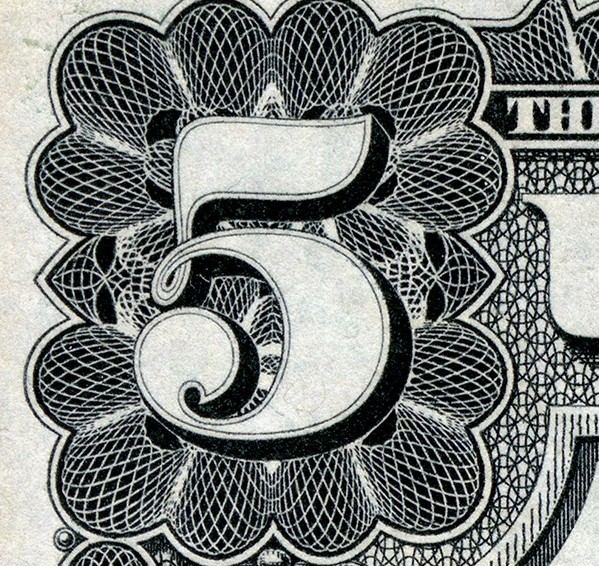This post is for the executor, executrix, manager, or court appointed arbiter of a numismatic estate. This person or group of people have a difficult task on their hands. Not only is it difficult to appraise and liquidate a coin collection, but now you throw into the mix the wants, needs, and feelings of the heirs of the estate. An individual heir has it easy. They can refer to my series on selling your numismatic estate for some advice on the best way to liquidate their collection. When there are multiple heirs involved, things get tricky. Questions arise such as whether or not to sell the collection and divide the proceeds, or divide the collection itself? How does one account for the sentimentality often associated with the collection? What is the best approach when the heirs aren’t getting along?
Dividing the collection.
There are a couple of approaches. The first is to get an itemized appraisal of the collection from a reputable coin dealer or two, divide the total value of the collection by the number of heirs, then divide the collection into groups that equal this amount. Sound fair? It really isn’t. One person could wind up with one or two really valuable pieces while another winds up with a large number of low value pieces. Or, one could wind up with all of the gold, another with the silver, and another with the pennies and mint sets. If all you are interested in is the monetary value in that particular moment, then this is fine. What this process does not account for is the numismatic potential of any particular coin, series, or material. Coin values fluctuate based on their numismatic interest as well as the from the values of their materials. Down the road, the person receiving the gold will have a different valued collection than the person receiving the pennies. Accounting for this requires dividing the collection based on interest first, and then dividing those subgroups into equal values. This is a challenging process that requires some give and take from the heirs. This is fine if the heirs are cooperative.
 If the heirs are not cooperative, then the best thing to do is to sell the collection, and divide the money. The best way to do this is to get bids from at least two coin dealers, and sell to the highest bidder. Keep the bids secret from each of them. The reason for this is if the first one submits a “low ball” bid, and the second one knows it, then the second dealer can offer just a bit more and still purchase the collection for too low of a value. In most cases, dealers submitting “blind” bids will offer the highest that they can pay, and will give offers that are close to one another. If there is a wide disparity, then get a third offer.
If the heirs are not cooperative, then the best thing to do is to sell the collection, and divide the money. The best way to do this is to get bids from at least two coin dealers, and sell to the highest bidder. Keep the bids secret from each of them. The reason for this is if the first one submits a “low ball” bid, and the second one knows it, then the second dealer can offer just a bit more and still purchase the collection for too low of a value. In most cases, dealers submitting “blind” bids will offer the highest that they can pay, and will give offers that are close to one another. If there is a wide disparity, then get a third offer.
Oftentimes, the heir of an estate will have difficulty deciding whether or not to liquidate a collection. They will hold a sentimental attachment to the memory of the collector, or want to “do right” by their passed loved one. They saddle themselves with a burden as the new steward of the collection even though they have no interest in coins, and set themselves up to make poor financial choices due to a sense of obligation or “keeping the memory alive.” What I suggest, if the heir doesn’t have any real interest in coins, is to select an item from the collection that reminds them of the collector to hold onto as a keepsake, then sell the rest.
If you are planning your estate, then here are a few tips to make things go easier for your heirs.  First, there is no one better equipped to sell a coin collection than the collector. If you can sell your collection yourself, the better off your family will be in dealing with your estate. Of course, we cannot predict the future, so there are a couple of other things that you can do to help your heirs along. The first is to keep the names and phone numbers of trusted coin dealers with your collection. This takes the guesswork out of figuring out who the reputable dealers are in your area, or worse, taking your collection to a pawn shop. The other is to keep your collection organized by denomination, and include notes regarding which items are special, how much you paid, and anything else that you feel will help someone get the best value in selling your collection. Thank you for reading Coin Collecting for Fun and Investment, Part 5. I hope you take some time to read some of our other posts, and good luck on your numismatic journey!
First, there is no one better equipped to sell a coin collection than the collector. If you can sell your collection yourself, the better off your family will be in dealing with your estate. Of course, we cannot predict the future, so there are a couple of other things that you can do to help your heirs along. The first is to keep the names and phone numbers of trusted coin dealers with your collection. This takes the guesswork out of figuring out who the reputable dealers are in your area, or worse, taking your collection to a pawn shop. The other is to keep your collection organized by denomination, and include notes regarding which items are special, how much you paid, and anything else that you feel will help someone get the best value in selling your collection. Thank you for reading Coin Collecting for Fun and Investment, Part 5. I hope you take some time to read some of our other posts, and good luck on your numismatic journey!


